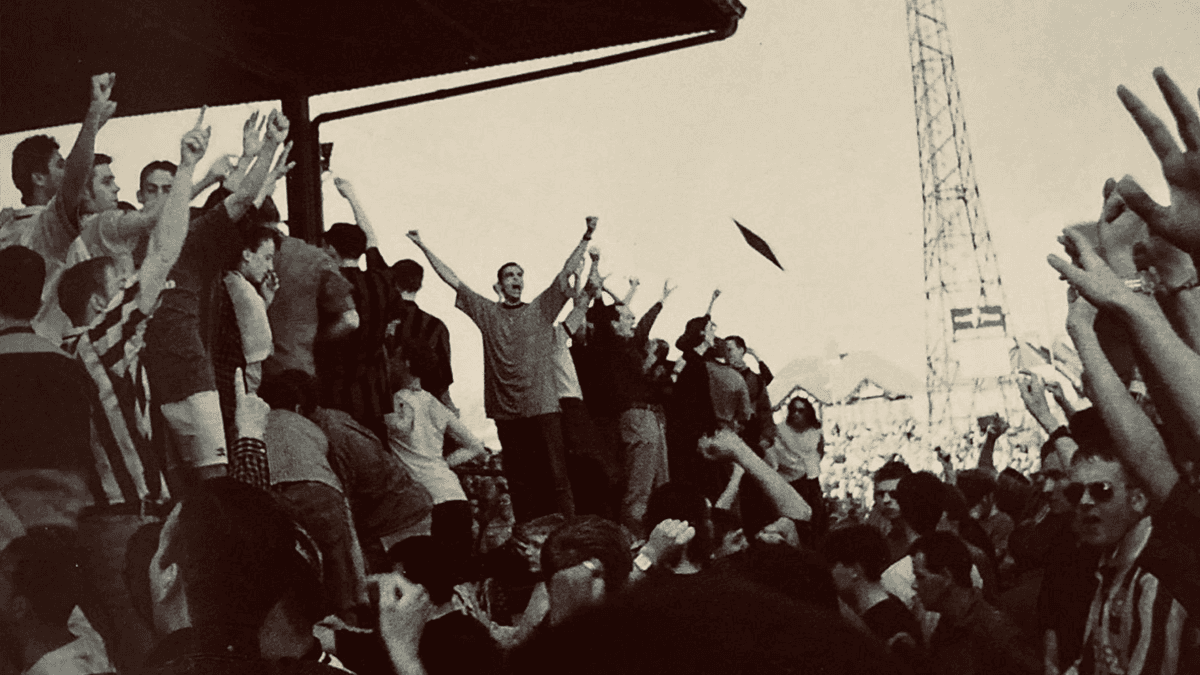Puma revives the roots of Hip Hop and the breaking movement in Brazil in the unprecedented documentary "The Break Wave"
Mar 15, 2022
The year was 1985, and the chosen stage was Largo de São Bento, in São Paulo. Young people wearing sweat suits and sneakers danced while MCs released their first rhymes and graffiti artists spread their art through the streets. And that's how the first organized breakdance movements emerged in São Paulo. Influenced by the movie Beat Street (1984), the famous “crews,” dance groups of the time, took over the São Bento subway station and created one of the first organized Hip Hop movements in Brazil.
The mini-documentary “The Break Wave” takes a trip back in time to the roots of breaking, narrated by its protagonists, members of the gangs Back Spin, Crazy Crew, Nação Zulu, and Street Warriors, which were considered the main ones in the movement, along with names like OSGEMEOS, Thaíde, DJ Hum, Mano Brown, and MC Jack, who began to gain prominence in the scene.
In the doc, the first Brazilian crews reminisce about how and where it all began, in one of the cradles of Brazilian Hip Hop. Besides the already mentioned names, there are also accounts of figures like Nelson Triunfo, considered the pioneer of Hip Hop in Brazil, and Doze Green, regarded as one of the pioneers of global Hip Hop and a participant in the movie Beat Street, a member of the Rock Steady Crew.






At the same time that dance, music, and graffiti were gaining their space, style and fashion marked this movement. Back then, access to the clothing and sneakers that were references in the United States was something very distant for the Brazilian crews. Some figures from the movement, like Thaíde, recount that they used to imitate PUMA clothes that did not exist in Brazil. Additionally, there are reports that friends would also create models imitating the Suede by using common sneakers of the time with glued leather strips to make them look like the classic PUMA.
The NOTTHESAMO made its presence known at the exclusive premiere of the documentary, which took place at Cine Marabá in São Paulo. The location was not chosen at random; it was in this very cinema that the movie “Beat Street” was screened for the first time in Brazil and where the first Brazilian breakers (B-boys) fell in love with Hip Hop. We took the opportunity to chat with Thaíde, one of the figures responsible for elevating hip hop culture in the country.

[NTS] “What was the style like back then? How did you see the scene at that moment?”
[THAÍDE] For us, it was all new, so we didn’t have that thing of “let’s do it this way”; we had a basic idea of what it was, influenced from abroad, and we made do with what we had. We wrote a story that we didn’t even know we were writing. It was all fun, and it took a long time for us to realize that this fun would turn into something much more serious, which is what we can see today.
[NTS] “Regarding clothing, when you saw it in magazines or on TV, how was it for you to find those pieces in Brazil? How did you manage?”
[THAÍDE] There was no way; we didn’t have it. We simply saw it in places and imagined how it would be. We had to get the pieces made. I personally had a Puma tracksuit made at the time, with the logo and everything. That was the only way we could have those pieces that we saw people from outside using.
The story of PUMA naturally intertwines with the history of Hip Hop, from when the Suede emerged in the first dance battles in South Bronx in the 70s, to the movie Beat Street in the 80s, where the brand supplied the tracksuits and sneakers. Since 1968, the PUMA Suede has been at the forefront of cultural turning points, transcending style and trends. The sneaker has been a reference for over 50 years, an icon of the past that remains a classic of the present and future, making a significant impact on society and culture.
Watch the documentary “The Break Wave” now.
https://www.youtube.com/watch?v=fkziwSGDOVk
Technical data “The Break Wave”:
Created by: MAD LAB RATS
Produced by: BTTB.INSTITUTE and A21 Films
Executive Producer: Tiago Mari
Direction: LOREM IPSUM
Cinematography: Danilo Arenas
Co-Produced by: Thaíde and Ana Paula Onofre
Editing: Vitor Hugo Santana and Daniel Barrios
Images: Pablo Aguiar, Luiz Egídio, Marcelo Batista, Samuel Costa
Photography Assistants: Lucas Martins and Samuel Costa
Original Score: OSGEMEOS and Roger Dee
Sound Design: Vitor Hugo Santana
Direct Sound: Lucas Martins
Production Direction: Carla Balsemão Lombardi
Production Assistant: Fidel Balsemão Lombardi
Script: Fabio Canale
Color: Marcelo Batista
Audio Mixing: Leonardo Nicolosi



